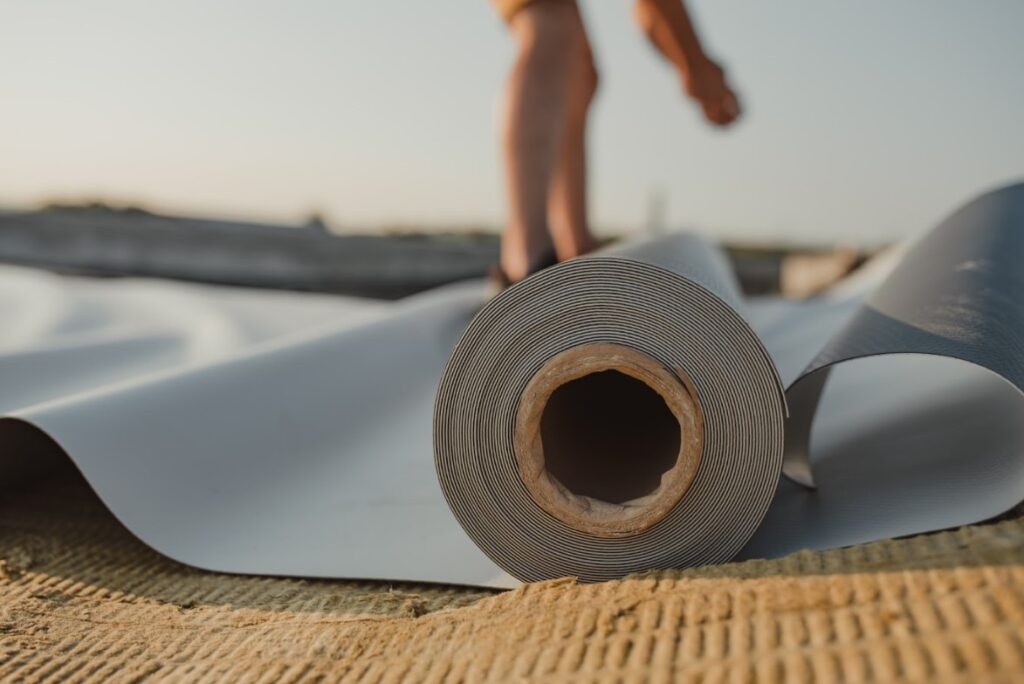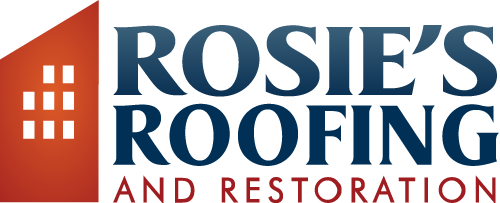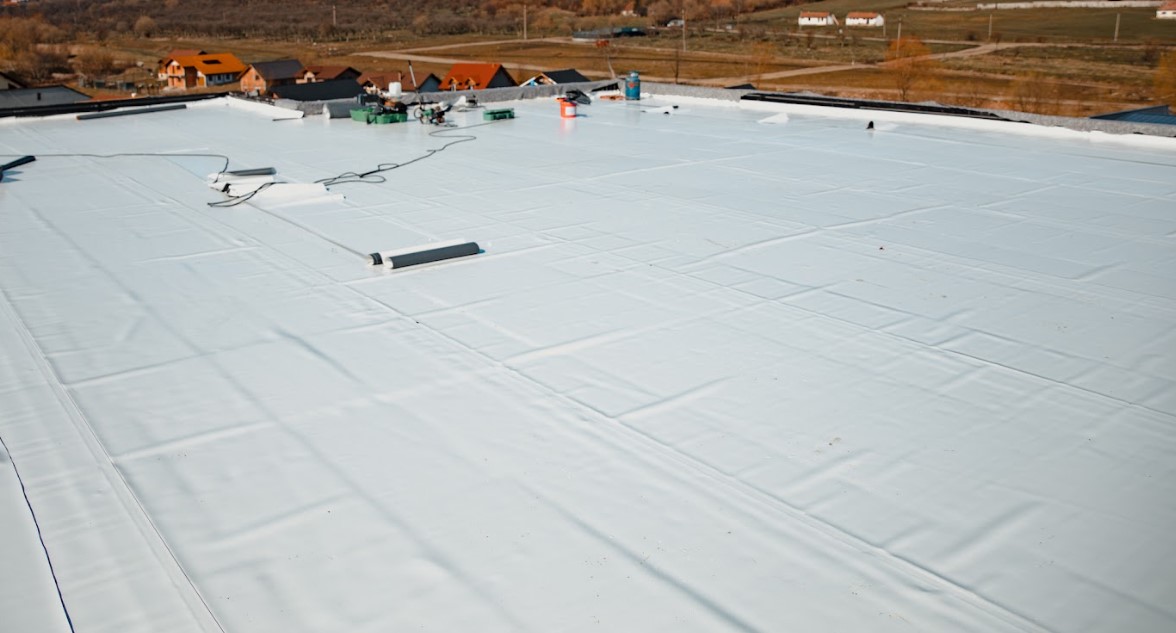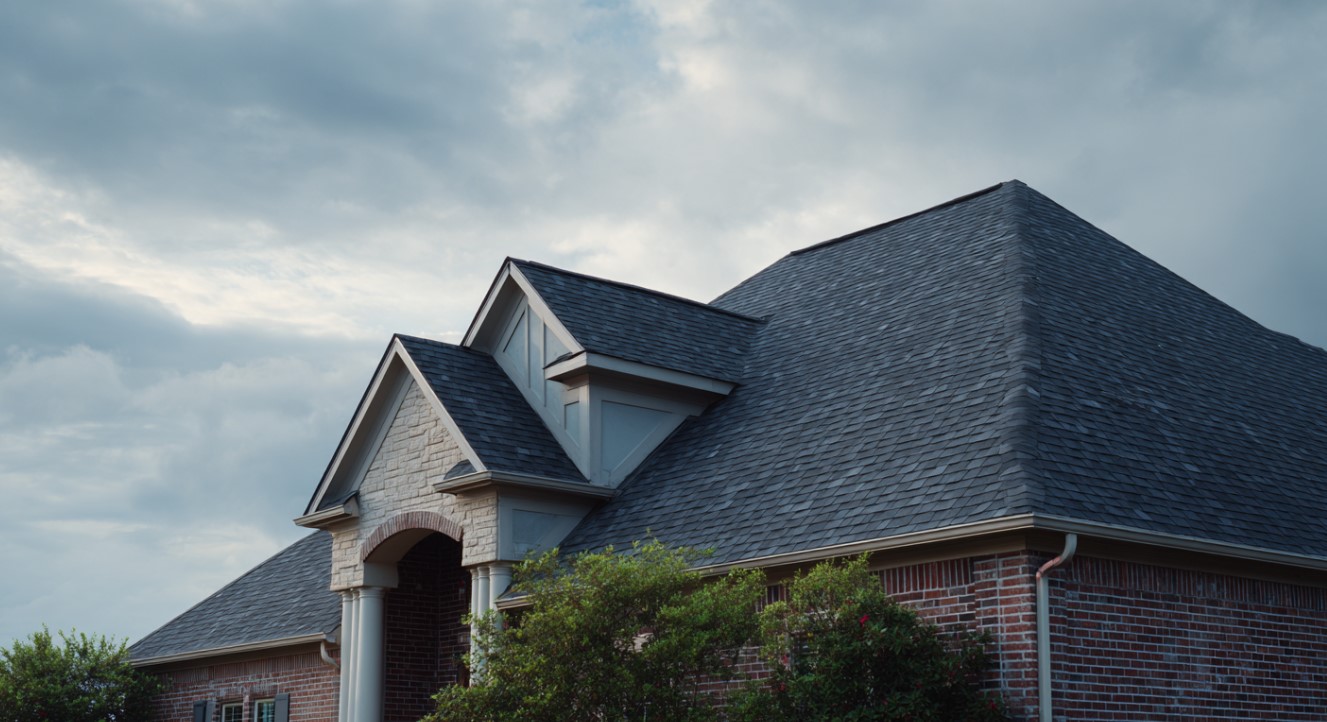At Rosie’s Roofing & Restoration, we’re committed to providing our clients with the most up-to-date information on roofing solutions. Today, we’re shedding light on PVC roofing – a popular choice for commercial and industrial buildings. Let’s dive into the facts about this versatile roofing material.
What Is PVC Roofing?
PVC (Polyvinyl Chloride) roofing is known for its exceptional durability and flexibility, making it a popular choice for a wide range of building types. This single-ply roofing membrane is constructed from a thermoplastic material, which provides it with the strength to withstand various weather conditions while remaining flexible enough to adapt to building movements and settling. Additionally, PVC roofing is resistant to chemicals, fire, and punctures, making it a reliable and long-lasting option for roofing systems. Its ease of installation and low maintenance requirements further add to its appeal, making it a preferred choice for many construction projects.
Key Benefits of PVC Roofing
When considering PVC roofing benefits, several advantages stand out:
Exceptional Durability
PVC roofing can withstand harsh weather conditions, including high winds, heavy rain, and even hail. This resilience translates to a longer lifespan for your roof.
Energy Efficiency
The reflective surface of PVC roofing helps to keep buildings cooler, potentially reducing energy costs associated with air conditioning.
Fire Resistance
PVC roofing materials are inherently fire-resistant, providing an additional layer of safety for your building.
Chemical Resistance
This roofing type resists damage from various chemicals, making it ideal for industrial settings.

The PVC Roof Installation Process
Understanding the PVC roof installation process can help you appreciate the complexity and expertise required:
- Preparation: The existing roof surface is cleaned and prepared.
- Insulation: A layer of insulation is often installed to improve energy efficiency.
- Membrane Application: The PVC membrane is rolled out and secured.
- Seam Welding: Seams are heat-welded to create a watertight seal.
- Flashing: Special attention is given to roof penetrations and edges.
- Final Inspection: A thorough check ensures all aspects of the installation meet high-quality standards.
When to Choose a PVC Roof
Knowing when to choose a PVC roof can help you make an informed decision for your building:
For New Construction
PVC roofing is an excellent choice for new buildings, especially those with flat or low-slope roofs. It provides a clean, modern look while delivering superior performance.
During Major Renovations
If you’re undertaking a significant renovation, switching to a PVC roof can upgrade your building’s performance and potentially increase its value.
In Harsh Environments
Buildings in areas with extreme weather or industrial zones can benefit from PVC roofing’s durability and chemical resistance.
Making the Right Choice for Your Roof
At Rosie’s Roofing & Restoration, we believe in empowering our clients with knowledge. While PVC roofing offers numerous advantages, it’s essential to consider your specific needs and budget when making a roofing decision.
We’re here to guide you through the process, from initial consultation to final installation. Our team of experts can help you determine if PVC roofing is the right choice for your building.
Don’t hesitate to contact us for more information about PVC roofing or to schedule a consultation. At Rosie’s Roofing & Restoration, we’re committed to delivering top-quality roofing solutions tailored to your needs.




